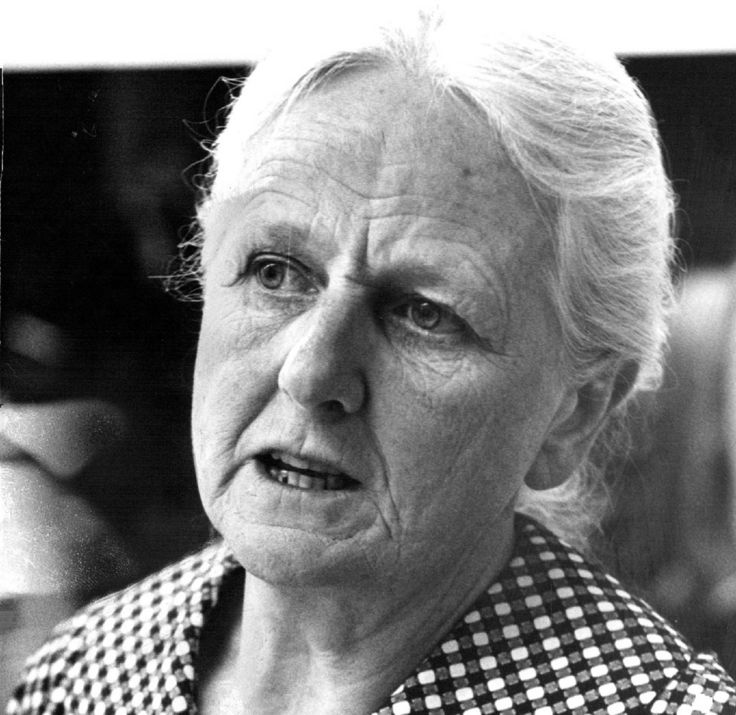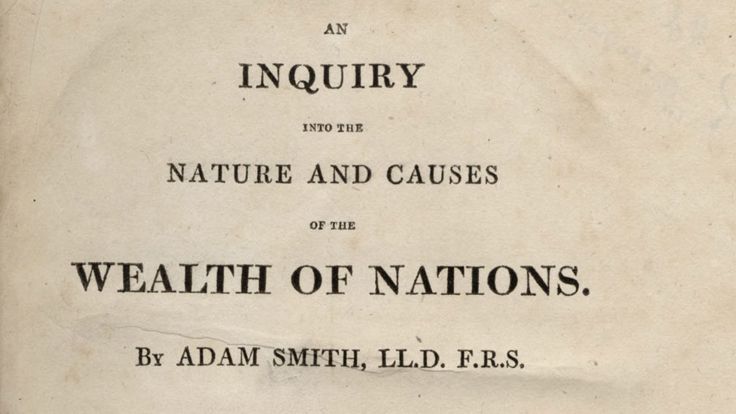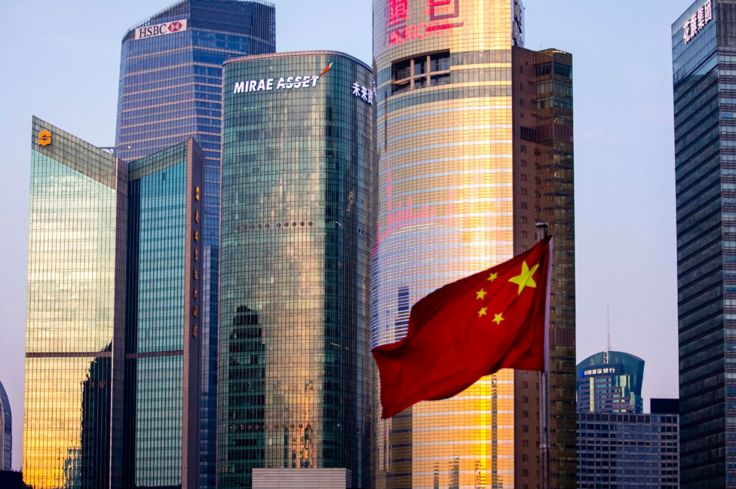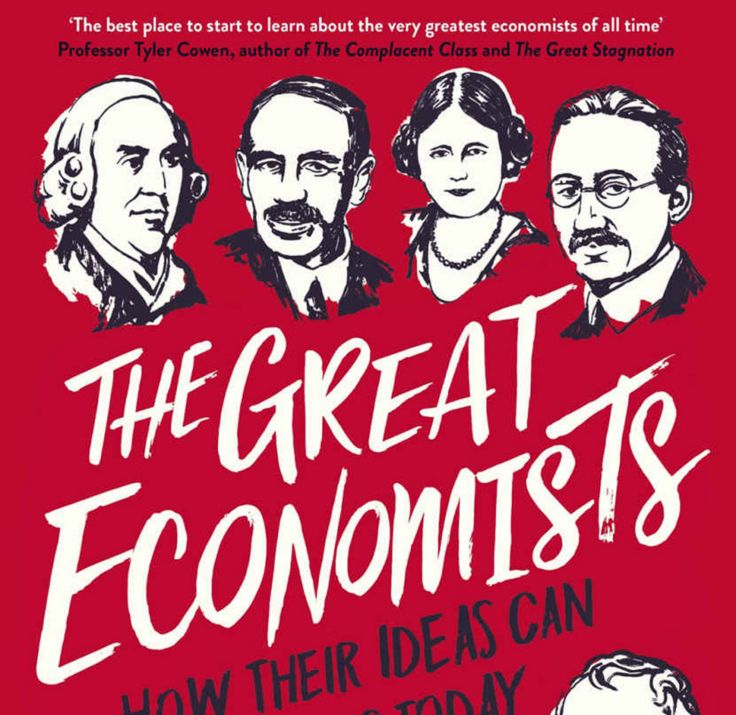Cara a cara con economistas que cambiaron el mundo
Seguramente
escuchaste hablar de ellos: Adam Smith, Karl Marx, John Maynard Keynes.
Todos son economistas famosos. Pero ¿conoces sus teorías?
En
su nuevo libro "The Great Economists" ("Los grandes economistas") la
economista y periodista británico-estadounidense Linda Yueh no solo
explica los pensamientos clave que distinguieron a estos y otros nueve
destacados economistas. También revela qué nos pueden enseñar sobre el mundo actual.
- Editor: Penguin Books (7 de junio de 2018)
- Idioma: Inglés
- ISBN-10: 0241234980
- ISBN-13: 978-0241234983
En
una entrevista con la revista BBC History, Yueh destacó que, aunque los
12 expertos que eligió tienen pensamientos muy disímiles -y en algunos
casos opuestos-, todos tienen algo en común.
"Todos
estos grandes economistas observaron los desafíos económicos más
importantes de su época (...) los examinaron, los analizaron, y
encontraron formas de ayudarnos a todos a entender mejor lo que estaba
pasando".
"Y más importante aún, (nos explicaron) qué podía hacerse al respecto", señaló la autora.
Así,
por ejemplo, Adam Smith se preocupó sobre cómo la Revolución industrial
afectaba la motivación de las personas y su sustento económico. Y John
Maynard Keynes se enfocó en cómo poner fin a la Gran depresión.
Todos los economistas también abordaron ciertos temas en común, principalmente el crecimiento económico.
"No
solo cómo crecer económicamente sino la calidad del crecimiento
económico, para que nos mejore la vida a todos", aclaró Yueh.
Los 12 "grandes economistas" destacados en el libro:
-Adam Smith
-David Ricardo
-Karl Marx
-Alfred Marshall
-Irving Fisher
-John Maynard Keynes
-Joseph Schumpeter
-Friedrich Hayek
-Joan Robinson
-Milton Friedman
-Douglass North
-Robert Solow

Temas de actualidad
El libro sorprende al revelar cómo algunas problemáticas económicas que parecen modernas son en realidad históricas.
Por ejemplo, la inequidad.
Ya a finales del siglo XIX era un tema que desvelaba al británico
Alfred Marshall, profesor de la Universidad de Cambridge, quien se
enfocó en cómo eliminar la disparidad salarial sin afectar la
prosperidad económica.
En su gran obra de 1890, "Principios de economía", enfatizó que las diferencias de renta son un factor clave que condicionan el desarrollo económico.
Y para entender cómo mejorar la distribución de la riqueza, intentó transformar la economía en una ciencia práctica, buscando formas de influir en los movimientos del mercado para que no solo mejorara el rendimiento del capital sino también el bienestar social general.
También el problema de los bajos salarios viene siendo abordado desde hace casi un siglo.
Una
de las primeras personas que analizó el fenómeno fue la economista
británica Joan Robinson, la única mujer que forma parte de la lista
compilada por Yueh.
 GETTY IMAGES
GETTY IMAGES
Analizando lo que ocurrió después de la Gran depresión, Robinson creó el modelo de "competencia imperfecta" que ayuda a explicar por qué el mercado laboral funciona de forma defectuosa, generando bajos salarios y desempleo.
Diferenciándose
de las teorías de la economía clásica, que sostenían que los mercados
funcionan de forma perfecta, basados en la oferta y la demanda, ella
mostró que cuando hay monopolios las empresas pueden explotar a sus
trabajadores, reduciendo sus sueldos.
Propuso como solución introducir competencia en el mercado laboral para que cualquier empresa que explote a un trabajador corra el riesgo de perderlo a manos de otra.
La
ausencia solitaria de Robinson en el libro sobre "grandes economistas"
también le sirvió a la autora para hablar sobre otra problemática
moderna: la desigualdad de género.
"De los 50.000 economistas que hay en el mundo menos de un quinto son mujeres", resaltó Yueh.
El primero
La
autora explicó por qué escogió a Adam Smith, el llamado "padre del
capitalismo", como el primer economista destacado de su libro.
"Lo que hizo Smith con su obra seminal 'La riqueza de las naciones' (1776) fue mejorar el entendimiento de cómo funciona una economía industrial", algo que recién estaba surgiendo en su época.
El
escocés fue el primero en explicar conceptos económicos como precio,
producción, distribución, finanzas públicas, comercio internacional y
crecimiento económico.
"Por eso se convirtió en la base de la economía desde entonces", señala Yueh.
Smith no solo explicó como funcionaba estaba nueva economía industrial sino cómo afectaba a los trabajadores.
Y, al igual que los otros economistas incluidos en su libro, Yueh señaló que sus pensamientos siguen siendo relevantes hoy.
 GETTY IMAGES
GETTY IMAGES
"Sus teorías nos siguen sirviendo para entender cómo funciona el mercado y el rol de Estado".
"Y
nos ayuda a entender cuándo debemos estar preocupados y cómo debemos
entender la balanza comercial y los déficits comerciales, cosas que aún
se debaten hoy", afirmó.
Marx y China
La
autora también habló sobre otro de los economistas más famosos de su
libro: el alemán Karl Marx, de cuyo nacimiento se cumplieron 200 años en
2018.
BBC History le consultó qué pensaría el ideólogo del comunismo sobre la superpotencia en la que se ha convertido China, el país comunista más exitoso de la historia.
"No estoy segura de que Marx reconocería que la economía china de hoy adhiere a sus principios", respondió Yueh.
"El
Partido Comunista chino sí siguió el marxismo por un tiempo antes de la
ruptura con la Unión Soviética, después de la Segunda Guerra Mundial",
indicó la autora.
Pero todo eso cambió con "la introducción de las reformas de mercado a fines de 1978".
 GETTY IMAGES
GETTY IMAGES
Yueh cree que a Marx podía haberle resultado "curioso" ver
qué pasaba cuando se introducía el capitalismo en un país con un
sistema político comunista, "pero según sus conceptos no podía coexistir
el capitalismo con el comunismo", aclaró.
El futuro
La
autora contó que el último economista en su lista, el estadounidense
Robert Solow, podría ayudarnos a resolver una de nuestras principales
problemáticas económicas actuales, que afecta nuestro futuro cercano: el estancamiento económico.
"El
crecimiento económico se ha ralentizado desde la crisis financiera de
2008 e incluso antes se venía frenando, al igual que el crecimiento
productivo", dijo la economista.
En
ese contexto, explicó, muchos temen convertirse en Japón: un país rico
que nunca pudo recuperarse del todo de su propia crisis financiera, en
los años 90.
El "modelo de crecimiento" de Solow,
que analiza la relación entre la productividad, la capacitación del
trabajador y la inversión, podría brindarnos las respuestas para salir
del problema, cree Yueh.
https://www.bbc.com/mundo/noticias-46561549?fbclid=IwAR3_LtSqPzXz5hKsRM5Wtj5Mv_Sni2J5eiLDbgw53-Kh4E8t-4_88fgBcxU
-
Are you looking to learn about the very greatest economists of all time? Linda Yueh's book is the best place to start, a modern-day version of Robert Heilbroner's classic The Worldly Philosophers.
(Tyler Cowen, the Holbert L. Harris Chair of Economics at George Mason
University, and author of The Complacent Class and The Great Stagnation)Economics students are not taught the history of economic thought. They, like others, can learn a lot from this book: some of the great economists of the past had insights that could have saved the subject from its recent embarrassments. (Paul Collier, Professor of Economics and Public Policy at Oxford University)
Not only a great way to learn in an easily readable manner about some of the greatest economic influences of the past, but also a good way to test your own a priori assumptions about some of the big challenges of our time. (Lord Jim O’Neill, former Chairman at Goldman Sachs Asset Management, former UK Treasury Minister, and author of The Growth Map)
A fascinating event for anyone interested in economics. For this is a book which, as the title suggests, champions the value of studying the leading economic thinkers of the past ... As an Oxford don and a professor at London Business School, Yueh undoubtedly knows her stuff; and as a former chief business correspondent for the BBC and economics editor at Bloomberg TV, she is a well-known and skilful communicator ... The achievements of modern, scientific economics are significant, and the reader who wants a slick and well-curated tour of its current policy recommendations will profit greatly from Yueh's enjoyable and up-to-date book. (Felix Martin New Statesman)
An extremely engaging survey of the lifetimes and ideas of the great thinkers of economic history, woven together with fascinating and useful discussions of how their ideas still shape economic policy today. Yueh's book is reminiscent of Heilbroner's marvellous classic The Wordly Philosophers, but more focused on contemporary debates on inequality, trade and productivity. Although targeted at readers interested in economic issues, this book would also make an excellent supplementary reading for undergraduate courses in economics, politics and social studies. (Kenneth Rogoff, Thomas D. Cabot Professor of Public Policy and Professor of Economics at Harvard University, author of The Curse of Cash and co-author of This Time is Different)
Linda Yueh has had the brilliant idea of, not just describing the theories of each great thinker, but linking each one to a particular problem of today ... I am sure Linda Yueh's original approach will deepen students' understanding of the Great Economists. (Lord Lamont, former Chancellor of the Exchequer)
What would the great economists of the past make of today's problems? Linda Yueh takes on this ambitious task in this engaging book, introducing us to the work of each economist and conjecturing how they might have advised us. This book is a very readable introduction to the lives and thinking of the greats, and reminds us that policymakers continue to be, as Keynes wrote, "slaves of some defunct economist". (Raghuram Rajan, Katherine Dusak Miller Distinguished Service Professor of Finance at the University of Chicago Booth School of Business, former Governor of the Reserve Bank of India, and author of I Do What I Do and Fault Lines)
To anyone with even a passing interest in the economic problems, large and small, affecting us today, What Would the Great Economists Do? comes at the right time: a highly accessible and acute guide to thinking and learning from the men and woman whose work can inform and ultimately aid us in understanding the great national and global crises we face. (Nouriel Roubini, author of the New York Times bestselling Crisis Economics: A Crash Course in the Future of Finance)
This well-written book provides more than an engaging discussion of how the "Great Economists" changed the course of economic thinking and history. It links their insights to current economic challenges, assessing how their unique contributions can improve future wellbeing. It concludes by artfully bringing together the economists' individual insights to shed light on the backlash against globalization. Read it not only to learn about the world's great economists, but also to see how consequential thought innovations can be, and have been. (Mohamed A. El-Erian, Chief Economic Adviser at Allianz, former CEO of PIMCO)
Is economics a science in which each new generation's discoveries build on those of the old? Or a humanistic study in which old ideas remain valid and relevant today? Linda Yueh's account of the thinking of the great economists demonstrates that both perspectives are true. (Professor John Kay)
Reseña del editor
What can the ideas of history's greatest economists tell us about the most important issues of our time?'The best place to start to learn about the very greatest economists of all time' Professor Tyler Cowen, author of The Complacent Class and The Great Stagnation
Since the days of Adam Smith, economists have grappled with a series of familiar problems - but often their ideas are hard to digest, before we even try to apply them to today's issues. Linda Yueh is renowned for her combination of erudition, as an accomplished economist herself, and accessibility, as a leading writer and broadcaster in this field; and in The Great Economists she explains the key thoughts of history's greatest economists, how their lives and times affected their ideas, how our lives have been influenced by their work, and how they could help with the policy challenges that we face today.
In the light of current economic problems, and in particular economic growth, Yueh explores the thoughts of economists from Adam Smith and David Ricardo through Joan Robinson and Milton Friedman to Douglass North and Robert Solow. Along the way she asks, for example: what do the ideas of Karl Marx tell us about the likely future for the Chinese economy? How does the work of John Maynard Keynes, who argued for government spending to create full employment, help us think about state investment? And with globalization in trouble, what can we learn about handling Brexit and Trumpism?
In one accessible volume, this expert new voice provides an overarching guide to the biggest questions of our time.
-
The Great Economists includes:
Adam Smith
David Ricardo
Karl Marx
Alfred Marshall
Irving Fisher
John Maynard Keynes
Joseph Schumpeter
Friedrich Hayek
Joan Robinson
Milton Friedman
Douglass North
Robert Solow
-
'Economics students, like others, can learn a lot from this book' - Professor Paul Collier, author of The Bottom Billion
'Not only a great way to learn in an easily readable manner about some of the greatest economic influences of the past, but also a good way to test your own a priori assumptions about some of the big challenges of our time.' - Lord Jim O'Neill, former Chairman at Goldman Sachs Asset Management, former UK Treasury Minister, and author of The Growth Map
'An extremely engaging survey of the lifetimes and ideas of the great thinkers of economic history.' - Professor Kenneth Rogoff, author of The Curse of Cash and co-author of This Time is Different
'This book is a very readable introduction to the lives and thinking of the greats.' - Professor Raghuram Rajan, former Governor of the Reserve Bank of India, and author of I Do What I Do and Fault Lines
'Read it not only to learn about the world's great economists, but also to see how consequential thought innovations can be, and have been.' - Mohamed el-Erian, Chief Economic Adviser at Allianz, former CEO of PIMCO
-
https://www.financialexpress.com/lifestyle/book-review-linda-yuehs-the-great-economists-explains-the-key-thoughts-of-historys-greatest-economists/1253507/
Book Review: Linda Yueh’s The Great Economists explains the key thoughts of history’s greatest economists
By: Madan Sabnavis | Published: July 22, 2018 12:https://www.financialexpress.com/lifestyle/book-review-linda-yuehs-the-great-economists-explains-the-key-thoughts-of-historys-greatest-economists/1253507/-----
Cada economista debe ser valorado
por su contribución en el contexto histórico de los años que vivió, pero como
recuerda Yueh, resulta curioso que Marx indicara que no podría coexistir el
capitalismo en un pais con un sistema político comunista, como esta pasando
hace décadas con la actual China, con su modelo de "éxito" dual,
primero denominado parasitario, acoplado en un principio con el Chinamerica,
potenciado por Nixon, deslocalización a cambio de compra de dólares, que siguió
avanzando con su ingeniería económica, con su control de partido único, con sus
transferencias en investigación y con sus economías de escala, teniendo ahora
un crecimiento exponencial, a pesar de la reculada actual del Firts America de
Trump con un proteccionismo nefasto para la economía mundial, a pesar que en el
corto plazo, para EEUU, les supone ganar tiempo y les permite su huida hacia
adelante, para poder tener en EEUU una situación de pleno empleo, como fue el
caso anterior con la aplicación de medidas de geopolítica y geoeconómicas antes
de la crisis del 2007; cuando Greenspan realizo acciones permisivas con las
finanzas en parte desreguladas (Derogación ley Stegall Glass por Clinton) para
seguir en su huida, creando burbujas.
-
Capitalizing on Crisis: The Political Origins of the Rise of Finance
La huida de estados facilitando el crecimiento de
la industria financiera
-
In the context of the recent
financial crisis, the extent to which the U.S. economy has become dependent on
financial activities has been made abundantly clear. In "Capitalizing on
Crisis", Greta Krippner traces the longer-term historical evolution that
made the rise of finance possible, arguing that this development rested on a
broader transformation of the U.S. economy than is suggested by the current
preoccupation with financial speculation. Krippner argues that state policies
that created conditions conducive to financialization allowed the state to
avoid a series of economic, social, and political dilemmas that confronted
policymakers as postwar prosperity stalled beginning in the late 1960s and
1970s. In this regard, the financialization of the economy was not a deliberate
outcome sought by policymakers, but rather an inadvertent result of the state's
attempts to solve other problems. The book focuses on deregulation of financial
markets during the 1970s and 1980s, encouragement of foreign capital into the
U.S. economy in the context of large fiscal imbalances in the early 1980s, and
changes in monetary policy following the shift to high interest rates in 1979.
Exhaustively researched, the book brings extensive new empirical evidence to
bear on debates regarding recent developments in financial markets and the
broader turn to the market that has characterized U.S. society over the last
several decades.
2. The New Global Rulers: The Privatization of Regulation in the World Economy
Tim Büthe & Walter Mattli
La privatización de la regulación,ambos ambos temas
relacionados:gobernanza mundial, huida de los estados via financiacialización
de la economía; la capitalización de crisis: los orígenes políticos de la
rebelión de Finanzas y por otro lado la privatización de la regulación.
(Princeton University Press,
2011)
Over the past two decades,
governments have delegated extensive regulatory authority to international
private-sector organizations. This internationalization and privatization of
rule making has been motivated not only by the economic benefits of common
rules for global markets, but also by the realization that government
regulators often lack the expertise and resources to deal with increasingly
complex and urgent regulatory tasks. The New
Global Rulers examines who writes the rules in international
private organizations, as well as who wins, who loses--and why.
Tim Bthe and Walter Mattli
examine three powerful global private regulators: the International Accounting
Standards Board, which develops financial reporting rules used by corporations
in more than a hundred countries; and the International Organization for
Standardization and the International Electrotechnical Commission, which
account for 85 percent of all international product standards. Bthe and Mattli
offer both a new framework for understanding global private regulation and
detailed empirical analyses of such regulation based on multi-country,
multi-industry business surveys. They find that global rule making by technical
experts is highly political, and that even though rule making has shifted to
the international level, domestic institutions remain crucial. Influence in
this form of global private governance is not a function of the economic power
of states, but of the ability of domestic standard-setters to provide timely
information and speak with a single voice. Bthe and Mattli show how domestic
institutions abilities differ, particularly between the two main
standardization players, the United States and Europe.
Tim Bthe is assistant professor of political science at Duke University. Walter Mattli is professor of international
political economy and a fellow of St. Johns College, University of Oxford. His
books include The Politics of Global Regulation (Princeton).
-
Endorsements:
Tim Bthe and Walter Mattli
say something new and important about the world economy. Better yet, they prove
their case. As economic interdependence grows and with it the need for clear
global rules, more and more of those rules are being developed by private
regulatory groups. Bthe and Mattli not only document this shift, they show how
inherently political the process is.--Charles Lipson, University of Chicago
In a world where global
standards increasingly determine access to world markets, understanding how
those standards are set is of vital concern to citizens, governments, and
firms. This deeply informed book asks the questions and presents the often
counterintuitive facts about the relation between domestic interests and global
rule making that will set the intellectual agenda and shape political
discussion in this area for years to come.--Charles Sabel, Columbia Law School
Bthe and Mattlis survey of
hundreds of senior financial managers is a window into a world most of us have
observed only anecdotally. This impressive book convincingly reveals that the
global regulatory advantage goes to those actors who can get useful information
into the right hands at the right time. Bravo on a compelling story about how
private firms, industry organizations, and local regulators contribute to the
global governance of finance and production.--Beth Simmons, Harvard University
When you buy an electrical
appliance or rely on corporate accounts, you are affected by transnational
private regulation--a technical arena that is also highly political. In The New Global Rulers, Tim Bthe and Walter Mattli
brilliantly explain who wins, and who governs, in this significant but
under-studied domain.--Robert O. Keohane, Princeton University
-
https://www.politics.ox.ac.uk/news/the-new-global-rulers.html

No hay comentarios:
Publicar un comentario